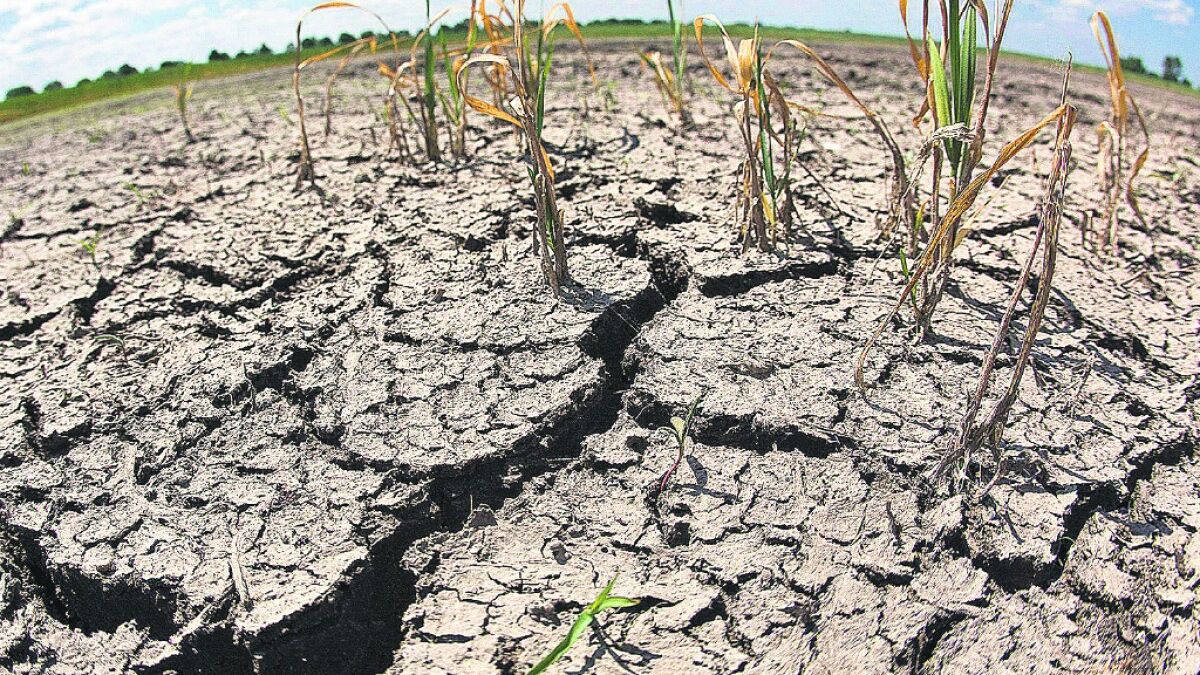The XXXIX edition of the Annual Economics Conference They put on the table the strong consequences of the last drought in the productive sector. Livestock and agriculture were particularly affected, so specialists propose learning from what happened to deal with future situations with similar characteristics.
“Climate change and macroeconomics” It was one of the central tables held on Thursday, which included the presentation of four technical reports by economists Serafin Frache, of the University of Montevideo; Fernando Giuliano, of the World Bank (WB); Andrea Baron and Helena Rodriguez, of the Central Bank of Uruguay (BCU); and Chris Evans, representative of the International Monetary Fund (IMF).
At the meeting, various studies were presented that analyze the effects of Climate Change on the Uruguayan macroeconomy. In this regard, both Evans from the IMF and Giuliano from the WB focused their reports on the impact that it had on the productive sector local the most recent drought that impacted the Uruguay between 2022 and 2023.
The specialists referred to the relevant exposure that occurred to vulnerable sectors. transition risk in terms of GDP, exports of goods and bank credit. According to both reports with similar results, the impact was mainly in the sectors linked to food production, particularly the cattle raising, with 5% of the product, 25% of exports and 12% of credit to companies.
It was clarified that this occurs within the framework of the conditions of the livestock production system of Uruguaywith animals living outdoors and fed on natural pasture. The reports also mention that greenhouse gas emissions from livestock farming are part of the biogenic carbon cycle.
For his part, Fernando Giuliano focused his presentation on explaining that the strong impact of the recent drought, considered the most powerful in the last hundred years, had more acute damage to the agriculture but more persistent for livestock. According to their analysis, in 2023 the GDP fell 2.8% only due to this climatic event.
As for exports, at that time and going forward they fell by 7% in livestock and 20% in agriculture. That same percentage (20%) is what “can be expected” as an impact in the medium and long term.
The four documents presented, prepared by this group of technicians from international organizations plus the academic support and accompaniment of professionals from the BCU They also proposed some measures to mitigate these meager effects. One of them is to “save” to reduce what could be negative consequences on macroeconomic values. In addition, reference was made to the need to include the concept of climate change in all macroeconomic reports that must be prepared by those responsible for implementing these policies.
Artificial intelligence, gender and the labour market
The XXXIX Annual Economic Conference will continue this Friday with a series of round tables, including Artificial Intelligence and Central Banking, with the participation of Laura Rodriguez Garcia and Patricia Marchesano of the UTEC University; Valentina Cortes of the Central Bank of Chile, Diego Fernandez of the BCU and Jamile Magaly Valles Espinoza of SBS – Peru.
There will also be another panel on gender and the labor market where Uruguayan researchers will analyze relevant aspects of the gender gap and its impact on the labor market. Rodrigo Ceni, Estefania Galvan, Cecilia Parada, Veronica Amarante and Maria Eugenia Echeberria (IECON)next to Mikhail Yapor of PARTY.
Source: Ambito




